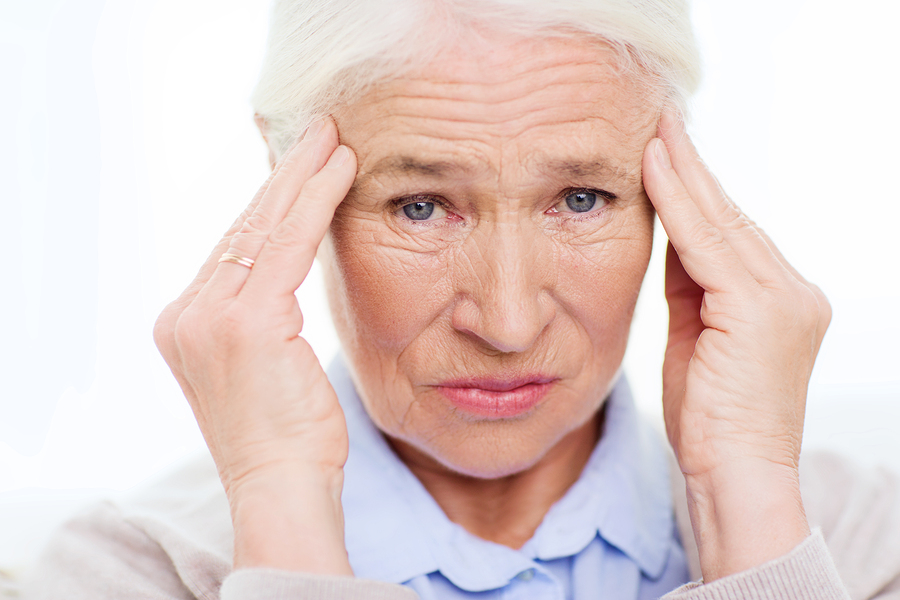International Stress Awareness Week: 7 signs you might be too stressed
Spotting the symptoms isn’t as easy as you might think.
Everyone gets stressed from time to time, but when is it time to speak to a doctor about it?
While experts say that a little stress is OK – it can actually be beneficial in some situations – chronic stress can be bad for both your mental and physical health.
As today marks the start of International Stress Awareness Week, we asked experts to share the signs that you might want to get the issue checked out with your GP.
1. You’re always in a bad mood

Constantly find yourself snapping at your other half? “When you’re stressed, your body releases stress hormones including cortisol,” says Pablo Vandenabeele, clinical director for mental health at Bupa UK Insurance.
“These hormones can affect your mood and energy levels. As a result, you may feel more irritable or worried than usual, or you might find that you struggle to concentrate or make decisions.”
2. You’re not sleeping properly

“Stress can disrupt normal sleeping patterns in different ways,” says Vandenabeele.
“Some find they’re constantly tired and want to sleep as much as possible, while others struggle to fall asleep and wake up during the night thinking about the things that are causing them stress.”
If you notice your sleep has changed, it might be a sign to book a doctor’s appointment.
3. Changes to your sex drive

As Earim Chaudry, medical director at men’s wellness platform, Manual explains: “Stress can have some seriously adverse affects on both your happiness and your libido.”
This is because when your body reacts to stress, it adjusts to prepare you to either run away or stay and fight in response to a perceived harmful event.
“During your ‘fight or flight’ response, the body experiences an increase in heart rate and blood pressure to help you act quickly, while non-essential survival functions, such as sex drive, are diminished.”
4. You feel more emotional than usual

If you find you’re prone to crying more often than usual, it could be a symptom of stress.
“When we’re tired, things simply seem more difficult to handle,” says Vandenabeele, who adds: “It’s not uncommon to feel more emotional when you’re tired or stressed.”
5. You’re getting sick more often

Along with lowering your mood, stress can also affect your immune system.
“Increased stress levels can mean you’re more likely to get sick, and it takes you longer to get well again,” notes Vandenabeele. It can also cause problems such as aches and pains, headaches and nausea.
6. You’re overeating or undereating

When you’re struggling to cope, you might open the fridge and look for something that will satiate your need for comfort – such as a sweet treat.
“We call this ’emotional eating’, where people use food to help them deal with stressful situations,” says Chaudry.
“Funnily enough, in its immediacy, stress actually eradicates hunger, as the nervous system sends messages to the adrenal glands to pump out adrenaline,” he explains.
“Adrenaline helps trigger the body’s fight-or-flight response, a revved-up physiological state that temporarily puts eating on hold.
“If stress continues though, the adrenal glands release another hormone called cortisol, which increases appetite. This is one reason you might be reaching for the doughnuts after a day at the office.”
7. You’re drinking more than usual

Many people like to unwind after a stressful day with a glass of wine or pint of beer.
“People can tend to drink alcohol more when they’re stressed as a way of helping them relax,” says Vandenabeele. “However, alcohol can alter the chemistry in your brain and actually make you feel worse.
“Along with feeling tired and nauseous from a hangover, you may also find you’re jittery, anxious and feeling down after a night of drinking.
“It’s also best to avoid drinking too much caffeine as this can increase your stress levels.”
If you or a loved one is feeling overwhelmed by stress, it’s a good idea to talk to your doctor before the situation gets out of hand.
A qualified medical professional can recommend therapies and strategies to help you better handle your stress and get back on the road to recovery.
The Press Association
Latest posts by The Press Association (see all)
- 5 new books to read this week - November 23, 2024
- 3 easy Mary Berry recipes to make this season - November 22, 2024
- In Pictures: Party stalwart kept New Labour in touch with traditional supporters - November 21, 2024
- 6 easy indoor exercises to try this winter – and why they are good for you - November 19, 2024
- Martin Clunes: I can’t afford to retire – I’ve got too many horses - November 19, 2024





















